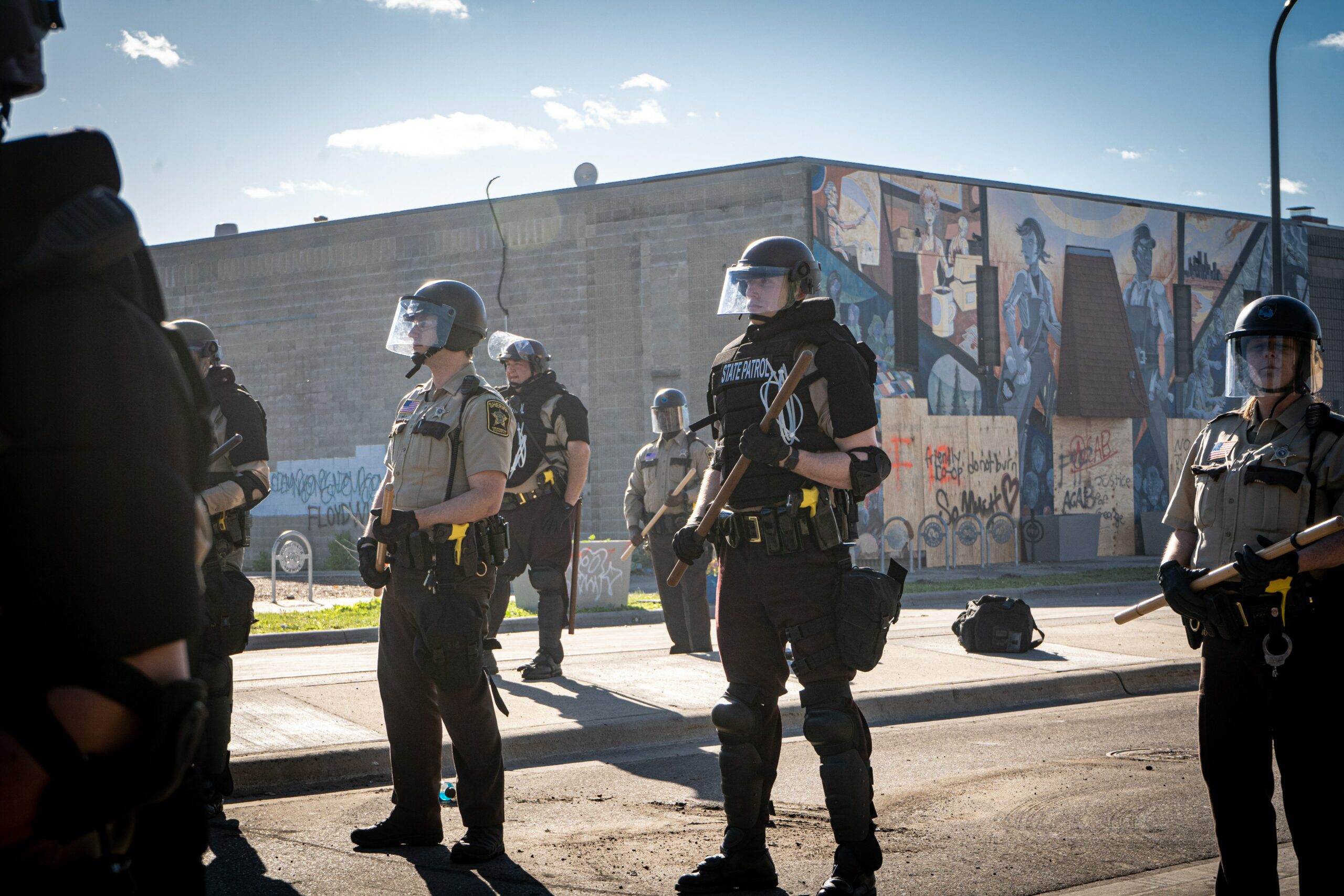
Keir Starmer has encouraged the Prime Minister to urge the United States and President Trump to “respect human rights and the fundamental democratic right to peaceful protest” amid Black Lives Matter protests.
In a letter to Boris Johnson today, the Labour leader says the police killing of George Floyd and the law enforcement response to subsequent protests have “shone a spotlight” on racism experienced by Black communities.
Making the case that the UK has a “moral obligation to speak out”, Starmer has asked whether the government has yet raised its own concerns through official channels following evidence of further police brutality.
He also makes reference to Labour’s earlier demand that the government looks into whether UK exports of riot control equipment are being used by US police “in the suppression of democratic rights”.
Finally, the letter reads: “Many of our own black citizens seeing these images also feel palpable anger and anxiety. What steps is the government taking to reassure black communities in the UK?”
Johnson was criticised by Starmer at Prime Minister’s Questions for not having so far spoken about the death. The opposition leader said: “I am surprised the Prime Minister hasn’t said anything about this yet.”
Asked for comment on the subject at the coronavirus briefing on Wednesday, Johnson said: “My message to President Trump, to everybody in the United States from the UK is that… racism, racist violence has no place in our society.”
Thousands gathered in Hyde Park and later Parliament Square to join a Black Lives Matter protest in London on Wednesday. Demonstrators chanted “say his name” and “the UK is not innocent”.
The protests were sparked by the police killing of George Floyd, a black man in Minneapolis. Police officer Derek Chauvin was recorded kneeling on Floyd’s neck for almost nine minutes while he said “I can’t breathe”.
The charge against Chauvin has now been upped to second-degree murder, and the three other previously uncharged officers that were present at the killing are facing counts of aiding and abetting murder.
Below is the full text of Keir Starmer’s letter to the Prime Minister.
Dear Prime Minister,
In the House of Commons yesterday, I raised my shock and anger at the killing of George Floyd and the response of US authorities to the peaceful protests. This has shone a spotlight on the racism, discrimination and injustice experienced by those from black and minority ethnic communities in the US and across the world.
I welcome that you shared some of the concerns I raised with you and want to use this opportunity to explore what the British government is doing to urge the United States and President Trump to respect human rights and the fundamental democratic right to peaceful protest. I am sure that you share my strongly held belief that the UK has a moral obligation to speak out in defence of these values, no matter where in the world they are challenged.
With that in mind I would like to ask you the following questions:
- Has the government raised its concerns through official channels about the reaction so far from US authorities to peaceful protest?
- What additional steps is the government planning to reiterate the importance of a peaceful and proportionate response to the protests in the US?
- What review is the government conducting to ensure UK exports are not being used in the suppression of democratic rights?
- Many of our own black citizens seeing these images also feel palpable anger and anxiety. What steps is the government taking to reassure black communities in the UK?
The death of George Floyd has justifiably prompted anger and a burning desire for fundamental change. The UK must be clear in showing that we understand this frustration and that we are ready to stand together with those who seek to tackle the injustice and inequality that remains within all our societies.
I look forward to your response,
Keir Starmer




More from LabourList
‘The Sherriff of Wild Westminster: what must change in elections bill’
‘The hope that kills you’: Reflections from the final day in Gorton and Denton
MPs, union leaders and organisations react to ‘bruising’ Gorton and Denton result